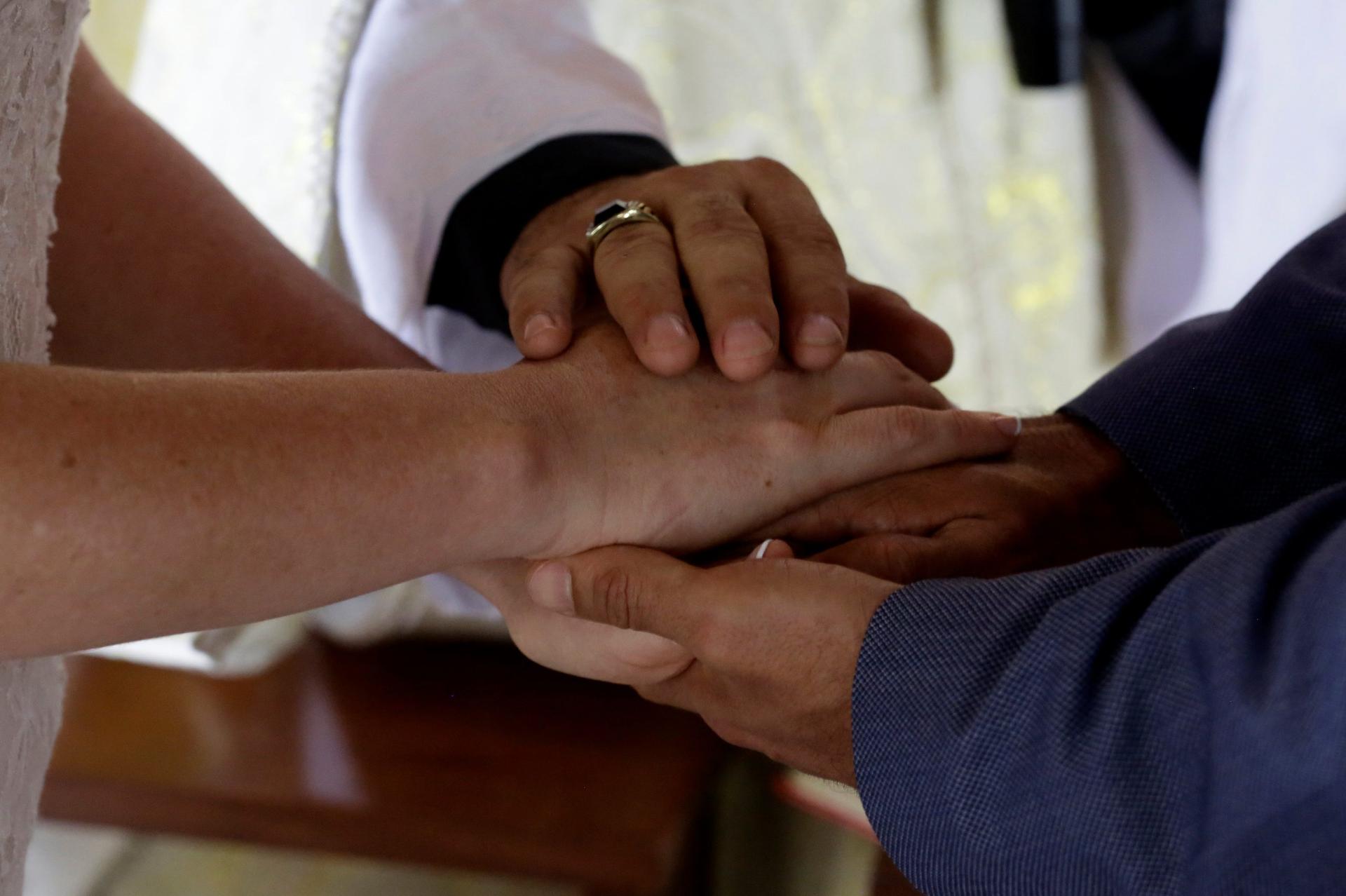ROME – When a 58-year-old Filipino named Lamberto Ramos whispered his regrets to his wife on her deathbed 10 years ago, she told him he shouldn’t have any, as long as he did one thing: Go back to his “first love” after she passed away.
She wasn’t talking about another woman, but the Catholic priesthood.
“Of course, I objected,” Ramos told Crux. “I said, ‘What first love are you talking about? You are my one and only love! Please don’t tell me that!’”
However, his wife insisted, telling him to “go back to your first love, which was your priesthood.”
Ramos – who had been in seminary before he met his wife of nearly 40 years, raised three children and built a successful career in the corporate world – was shocked. Looking at his wife, suddenly alert and with her eyes boring into him through tubes poking in and out of her body, he didn’t know what to say.
He had felt a call to the priesthood at a young age and entered a minor seminary, where he finished his studies. After roughly a year, the vocation director encouraged the young seminarians to spend some time outside, so they were sure about what they were giving up. It was during this time that Ramos met the woman he would eventually marry, leaving the seminary behind.
Ramos’s wife died the day after making her final request, succumbing to the cancer that ate its way through her system. Though he initially buried her final appeal in the back of his mind, it continued to gnaw at him, and two years later, at the age of 60, he began theological studies at a Jesuit seminary.
Today Ramos, who was ordained a priest two years ago at 66, is serving the Diocese of Antipolo in the Philippines as a special counselor to the bishop and is seeking to put his background as a CEO to use in a different context. Instead of fighting for shares of the global business market, he’s now trying to help his diocese better achieve its goal of evangelizing.
As someone who has been married, raised children and is now a priest, Ramos offers a unique perspective on the recent discussion about married priests, specifically the proposal from the October 2019 Synod of Bishops on the Amazon to ordain so-called viri probati, or tested married men, in rural parts of the Amazon in a bid to curb a regional priest shortage.
Stressing that his are only anecdotal thoughts based on his personal experience, Ramos said his first, gut-reaction “is that for practical reasons, priests must remain celibate.”
“There are many things that are shared in bed,” he said, explaining that not only would there be children to attend to, but there is also the risk that the priest’s family, though perhaps unintentionally, could intervene in his pastoral activities and decision-making.
Yet Ramos said he would also support the ordination of viri probati men who are in a similar situation to his: Men, whether still married or whose spouse has died, who “are retired and have no financial concerns.”
“They would be really great contributions to our Church,” he said, noting that their experience of family life and the professional world could be huge assets if they have a genuine vocation.
Pointing to his own experience as a successful businessman, Ramos said he is striving to improve the organization and functionality of his diocesan chancery by streamlining procedures and developing pastoral plans that directly respond to “the contemporary needs of the people of God in this diocese.”
Currently in Rome taking part in the Pontifical University of the Holy Cross’s Program of Church Management, Ramos is trying to pick up extra best-practices for improving his diocese. Though he’s already familiar with much of the content, Ramos said he’s learned a few new things he’s eager to apply.
The Catholic Church has been in existence for more than 2,000 years and is still standing, “so there must be a number of things we are doing right,” he said, “but definitely if you want to be more effective and more responsive and more relevant, you’ve got to make sure that things you’re doing to serve God through his Church must be done the proper way.”
“Today I’m arguing that there should be ways of doing things that should go straight to the marketplace,” he said, adding that “we can no longer wait for people to come to our Church.”
Putting it in marketing terms, Ramos explained that “whoever goes to the marketplace the fastest way, wins. That’s where I’m coming from.” In his view, the marketplace that currently has the most potential is among young people, who represent roughly one third of the population in the Philippines.
“Every time I say Mass, I’m not seeing millennials. They’re more frequently seen in the malls…We have to find a way to reach them,” he said, adding that “the oldies will die, but who’s going to come to our church if we don’t do anything about this?”
Follow Elise Ann Allen on Twitter: @eliseannallen
Crux is dedicated to smart, wired and independent reporting on the Vatican and worldwide Catholic Church. That kind of reporting doesn’t come cheap, and we need your support. You can help Crux by giving a small amount monthly, or with a onetime gift. Please remember, Crux is a for-profit organization, so contributions are not tax-deductible.















